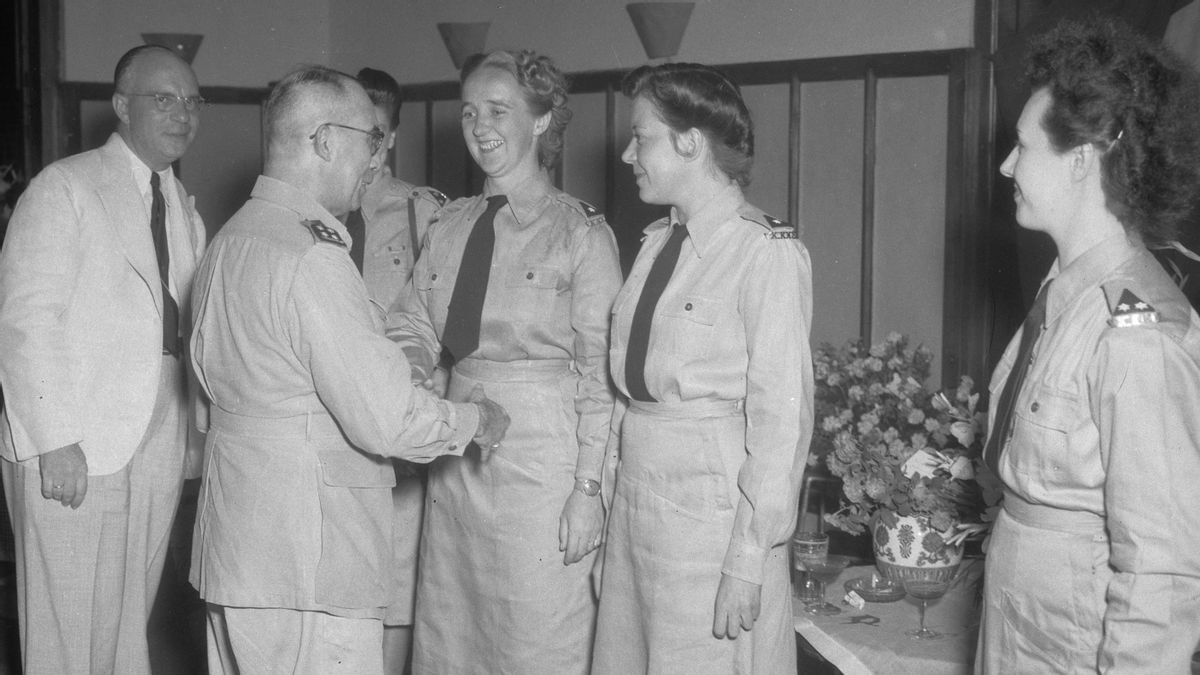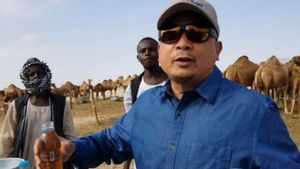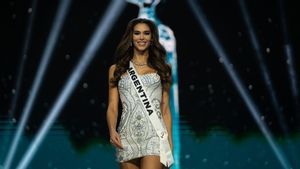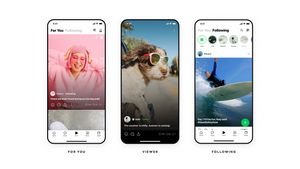JAKARTA - The Dutch colonial period was the darkest period in the history of this nation. The facts, starting from the politics of fighting against each other, forced cultivation, and impoverishing the native people, add to this darkness. Automatically, the memory of Dutch atrocities will increasingly take root in the minds of Indonesians. It was so imprinted that Indonesians were familiar with calling the colonial rulers the 'company'.
Inevitably, the term 'company' is a unique loanword and is still used today. To the extent that, the word 'company' pamor is as strong as any other term. Indonesians refer to the Dutch as colonizers, Olanda, and the colonial government.
In fact, the word 'company' itself comes from an Indonesian mistake in pronouncing the name of the Dutch trading company Vereenigde Oostindische Compagnie (VOC). Therefore, the most remembered only the last line, namely Compagnie. Gradually the Indonesian tongue began to absorb the word to become 'company'.
Therefore, literacy types ranging from books, dramas, and films often use the term 'company' as a pronunciations that are easier to pronounce. Some of them are MH Szekely Lulofs, who wrote the book Cut Nyak Din: The Story of the Queen of the Aceh War (1948).
He also often wrote the word 'company' to refer to the Dutch. The portion of the mention is the same as the mention of the Acehnese who often declared the colonial government as 'Kaphe (kafir) Laknatullah'.
"Teuku Umar has obtained the new title 'company', which is our ally. However, that title did not make Umar happy. It has been three years since he played the role of a person who surrendered to the Dutch. During that time he can play his role smoothly and satisfactorily, "added Lulofs.
Not only Lulofs, B. Hoetink - who told of a Chinese captain who became the scapegoat of the Geger Pacinan incident or the massacre of ethnic Chinese in Batavia in 1740 - also used the word 'company' to refer to the Netherlands. In his book entitled Ni Hoe Kong: Kapitein Tionghoa in Betawi Dalem in 1740 (1918), Hoetink explained that Ni Hoe Hong's family wanted to bring home the body of the former Chinese captain who was in Ambon to return to Batavia.
"As the family had a request, then in 1762, his son was allowed to go to Ambon to pick up his father's bones and bring them back to Betawi on a ship from the company with the payment of transportation costs," he wrote.
Presumably, that is what makes the word 'company' become popular. Moreover, the Big Indonesian Dictionary (KBBI), had absorbed the word 'company' as a Dutch trade alliance in the archipelago in the mid-17th to early 19th centuries, the VOC also interpreted it as the Dutch government during the colonial era.
However, it was not only the Indonesian people who absorbed the word 'company'. Neighbors of Malaysia are similar. However, Malaysia mentions the word 'company' for the British trade association, the East India Company (EIC), not to the Dutch VOC trading partner.

It is incomplete to discuss the term 'company' without directly discussing the historical case of the Dutch VOC trading partnership. This is because the VOC was the starting point for the Indonesian nation being colonized for hundreds of years. So that the role of the VOC was so big for the history of Indonesia and the Netherlands.
For Indonesia, the VOC was a cursed colonizer. As for the Netherlands, the VOC echo played a major role in the existence of the Windmills Country to this day. Quoted from Susan Blackburn in the book Jakarta History 400 Years (2011), reveals the VOC that was formed by the board of directors known as Heeren Zeventien, namely 17 representatives of shareholders, which began to be formed in 1602.
The purpose of its formation is none other than the national goal of accumulating wealth from the Cape of Good Hope to the East (Indonesia). So the VOC was not just an ordinary trading partnership. By the Dutch government, the VOC was given the role of a state. In which the VOC has an army and is entitled to enter into agreements.
“The VOC is a commercial company, not a company for colonialism. Because of that he was not interested in the nearly uninhabited areas of the Southern Continent he had discovered. In the mid-17th century the Company had expanded throughout the coastal areas in Asia, "said Bernard HM Vlekke in the book Nusantara (1961).
In line with that, the Governor General of the VOC (1619-1623 and 1627-1629), Jan Pieterszoon Coen had a giant plan to make Batavia (now: Jakarta) the center of trade in Asia. Through his steps, through trade channels which in practice justified any means, the VOC was able to obtain huge profits by exporting valuable goods from its territory to Europe.
Furthermore, historian Ong Hok Ham in his writing in Tempo magazine entitled Bureaucracy, from the Dutch East Indies (1984) emphasized that during the VOC in Indonesia, the Company had established a political position through agreements with the Mataram kings and other rulers on the coast.
As a strategy, the Company generally sided with the rebels. Instead of being friends, the VOC continued to support the rebels to immediately take power from the native rulers. In fact, not infrequently the Company was often involved in disputes between princes over power.
As a result, when one of them succeeded in occupying power. So, the VOC could control the rulers to always side with the Colonial government. "In this way, the VOC served as a political stabilizer. He maintains the balance of power between the central ruler (king) and the local rulers (regents). Apart from that, it also functions as a source of finance for the indigenous elite. "
Therefore, without realizing it, the local authorities became an extension of the VOC to continue exploiting the wealth of the archipelago. In another sense, the existing rulers had been made employees of the Dutch East Indies, known as pangreh praja or royal rulers.
Unfortunately, due to political intrigue, lack of competitiveness and corruption among VOC officials, the VOC was later declared bankrupt. The VOC dissolved in 1799. Everything that was left by the VOC in Indonesia, especially in Java, was taken over by the Dutch state, which gradually changed the name of the area to the Dutch East Indies.
Even so, historian JJ Rizal who was contacted by VOI confirmed that even though the VOC's rule had ended, the echoes of their power were still in the minds of Indonesians. Not surprisingly, the term company remains sustainable to refer to the Dutch colonial government.
"On the basis of the beginning of colonialism started by the VOC and so on. So, even though it has been taken over by the Dutch state, the term company is still enduring as the most appropriate colonial government pronoun, "Rizal concluded.
The English, Chinese, Japanese, Arabic, and French versions are automatically generated by the AI. So there may still be inaccuracies in translating, please always see Indonesian as our main language. (system supported by DigitalSiber.id)










